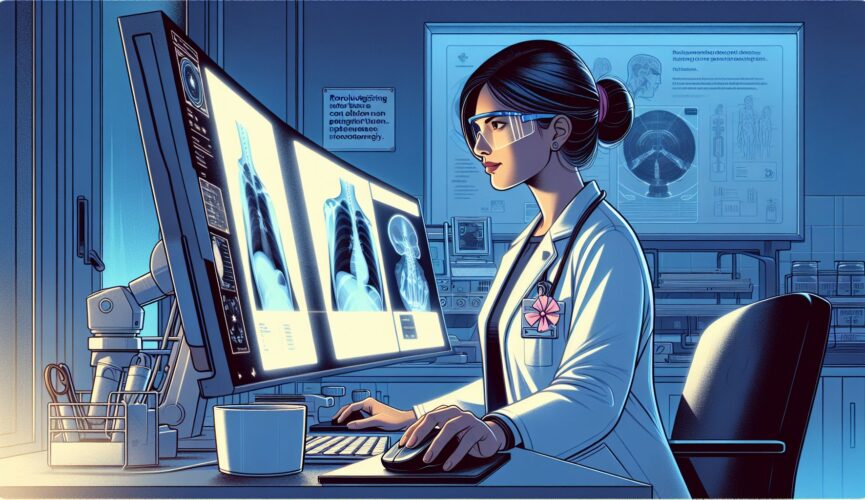Radiology plays a vital role in the diagnosis and treatment of cancer. As a radiologist, you have the unique opportunity to utilize imaging technologies to help patients and their healthcare team make informed decisions about their treatment plan. If you are interested in becoming a radiologist specializing in cancer care, here are some steps to get started on this rewarding career path.
Education
The first step to becoming a radiologist is to complete a Bachelor’s degree in a related field, such as biology, chemistry, or physics. After completing your undergraduate studies, you will need to attend medical school to earn a Doctor of Medicine (MD) or Doctor of Osteopathic Medicine (DO) degree.
Residency
Once you have completed medical school, you will need to complete a residency program in radiology. During your residency, you will gain hands-on experience in reading and interpreting medical images, such as X-rays, MRI scans, and CT scans. This is also a good time to focus on cancer imaging techniques and protocols, as cancer diagnosis and treatment are a significant part of a radiologist’s work.
Fellowship
After completing your residency, you may choose to pursue a fellowship in oncologic radiology. This specialized training will allow you to further develop your skills in diagnosing and treating cancer using imaging technologies. During your fellowship, you will work closely with oncologists, radiation oncologists, and other healthcare providers to provide comprehensive care for cancer patients.
Certification
To practice as a radiologist, you will need to become board certified by the American Board of Radiology (ABR) or a similar certifying body. Certification ensures that you have met the rigorous standards set forth by the specialty board and have the knowledge and skills necessary to provide high-quality care to cancer patients.
Continuing Education
As a radiologist specializing in cancer care, it is important to stay current with advances in imaging technology and cancer treatment. Consider pursuing additional certifications or attending continuing education courses to enhance your knowledge and skills in this rapidly evolving field.
Compassion and Empathy
In addition to your technical skills and medical knowledge, it is essential to have compassion and empathy when working with cancer patients. A cancer diagnosis can be overwhelming and frightening for patients, and your ability to provide support and reassurance can make a significant difference in their treatment experience.
Collaboration
Radiologists play a critical role in the multidisciplinary care team for cancer patients. Collaborate closely with oncologists, surgeons, and other healthcare providers to ensure that patients receive coordinated and comprehensive care. Communication and teamwork are essential for delivering the best possible outcomes for cancer patients.
Research
Consider engaging in research and academic pursuits to advance the field of oncologic radiology. Conducting research studies, publishing papers, and presenting at conferences can help expand our understanding of cancer imaging techniques and improve patient care.
In conclusion, becoming a radiologist specializing in cancer care requires dedication, education, and ongoing professional development. By pursuing additional training in oncologic radiology and staying current with advancements in imaging technology, you can provide high-quality care to cancer patients and make a difference in their treatment journey. Remember to approach your work with compassion, empathy, and a collaborative spirit to ensure the best possible outcomes for your patients.
